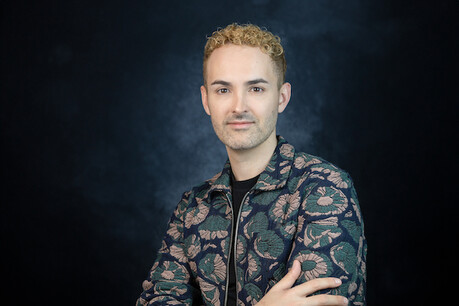
While some publishers are making job cuts, US business publication Fortune is expanding its teams in the UK and Europe.
New executive editor Alex Wood Morton is quite the man for the job: he previously oversaw the growth of the Forbes brand across Europe as the managing director and Europe editor. He also founded The Memo, a future trends magazine that he sold to Forbes in 2018.
Journalism.co.uk caught up with him to talk about the growth of specialist media, covering climate, and why constantly talking down businesses is bad for journalism as well as the economy. The interview is edited for brevity.
While many publishers are struggling, Fortune is expanding to Europe and growing its teams. What's the reason for your success?
Fortune caters to executives and leaders which is, by its nature, a small audience. There is a problem with the UK media though - it is often very negative and talks down businesses and those behind them.
I am myself an entrepreneur and I thought a lot about it. I saw how Fortune was thriving in the US and I realised that the UK lacks journalism that celebrates success. Perhaps one of the reasons is that we Brits are more reserved and we do not like to shout about our achievements.
Celebrating success does not mean being someone's PR wire though, we are still going to hold power to account. But we need to champion those who do business right.
Most people know Fortune for its 500 lists. How do these work with the editorial?
We are going to use a lot more data from the lists in our reporting. For instance, when Grethe Schepers, Fortune's new list director, Europe, saw that women leaders on all lists were over 55, we started to investigate why that was. That data inspired a powerful story and there is more data-led journalism to come.
The climate crisis is an increasingly important topic to cover. How will Fortune tackle it?
It is one of my editorial priorities. In my first editorial note in the print edition, I called for more attention to this important topic. In many ways, European businesses are leading the way in creating solutions to the climate crisis - think electric car manufacturers, for instance.
Another important area is regulation. I am not popular for this view but I know that when Europe regulates, the rest of the world follows.
What are your other editorial priorities?
Championing the next generation of business leaders in Europe like, for instance, Alexandre Arnault, the son of LVMH chairman Bernard Arnault, who is one of fashion's youngest chief executives. He led luxury luggage brand Rimowa since he was 25 but he has also been experimenting with NFTs. This new generation of executives in their mid-30s is entering the C-suite with a very different mindset.
Why are younger leaders different?
There are many parallels with millennials but young people are living in a very different economic context - the cost of living, the cost of buying a house and settling down in a city...they are very different in terms of what they are willing to compromise on.
Free daily newsletter
If you like our news and feature articles, you can sign up to receive our free daily (Mon-Fri) email newsletter (mobile friendly).
Related articles
- Reuters Institute trends and predictions 2023: revenue, news avoidance and tech turbulence
- Dougal Shaw, senior video innovation journalist of BBC News, on creating news series
- Tool for journalists: Global South Climate Database, for diversifying your climate coverage
- Upgrade your journalistic practices to tackle climate crisis
- Michelle Fyrne, group editor of SoGlos, on revamping regional media









